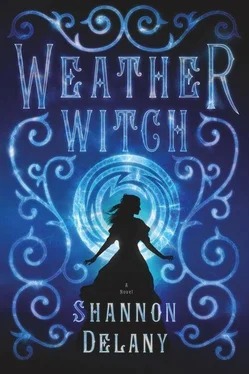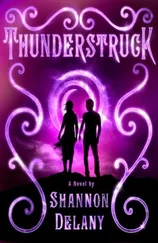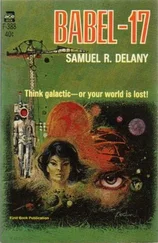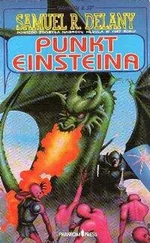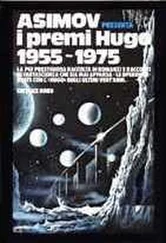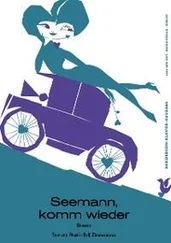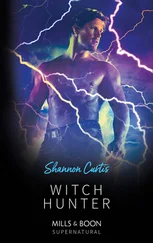Weather Witch
Weather Witch - 1
by
Shannon Delany
I’d like to start these acknowledgments with a nod to the city in which much of this novel’s action is placed: Philadelphia. I love Philadelphia and visit whenever I have the opportunity. Those of you who love history will understand why I chose Philly, and those of you who love fiction will understand why I’ve taken creative liberties with Philly’s history, geography, and science.
I hope readers love both history and fiction as that will make this series more enjoyable. Some events mentioned in this story did actually happen; a few historical characters make appearances. If, by my treatment of the past, I encourage a few of you to research and read things beyond this series, I’ll feel I’ve done a good job.
As always, thanks to my agent, Richard Curtis; my editor, Michael Homler, for giving this world a chance; the great staff at St. Martin’s Press, including Loren Jaggers and the copyediting team; my son and other family members who know to steer clear when I have writing to do; my brother for chatting about this concept over Mexican food one day; and the original rock bands Autumn Fire and Just a Memory for inspiring a couple of scenes in the story thanks to their powerful music! Thanks also to Felecia Scialdone-Burchett, Marshall Kruse, and Heather Vanmoer for letting me borrow bits of their names for my characters.
A big thank-you to the very talented singer and songwriter Wade Mulvihill, who happily wrote and gladly provided the song “Reeling” that both Laura and Lady Astraea sing in this book.
Thanks to the folks at Maine’s Bangor Museum and History Center and New York’s The Farmers’ Museum (Cooperstown), Nellis Tavern (St. Johnsville), and Hanford Mills (East Meredith) for gladly answering my questions; to Philadelphia’s City Tavern for faithful reproductions of period food; and to Salem’s Ye Olde Pepper Companie for keeping traditional candies available.
Special thanks to my beta readers for this project: Patricia Port Locatelli, Patrick Javarone, Steven Blaze, and the amazing Karl Gee (who has gone through this story almost as many times as I have now). Much love to you all!
I was born with a chronic anxiety about the weather.
—JOHN BURROUGHS
Holgate, Pennsylvania
1839
A banner snapped out on the pole high above the restrained seventeen-year-old boy, straightening to its full length. For a moment he thought he glimpsed his country’s motto: A Place for All . The wind shifted and the banner fell limp against its long wooden pole.
The straps cinched tight across his chest and threatening to squeeze the breath out of him declared his place plainly. Sweat dotted his forehead and arms and had little to do with the bright orange sun hanging overhead. Attached to a broad set of boards that forced him on his feet at the very top of Holgate’s tallest tower, Marion Kruse could see much of the bustling and walled compound below through the tower’s crenellations if he just tossed his dark curls out of his eyes. But he didn’t even try.
The view held no interest for him.
His focus was as fixed as his position—his mouth dry and his gaze nailed to the long, slender table that stretched nearby, covered with more than a dozen different blades and tools glinting ferociously in the unobstructed sunlight at the Eastern Tower’s top. He tried to swallow but a lump wedged in his throat and stopped his breath.
The door groaned open, hinges protesting as a man not even a half decade Marion’s senior—perhaps all of twenty-two—stepped onto the flat rooftop, briefly admiring the view beyond them. “You can see clear across the lake and the valley from here, you know? On days such as this I imagine a decent spyglass might let you glimpse as far as the rooftops of German Towne and Philadelphia itself,” he said loudly enough that Marion heard. “What a spectacular day!” He raised his arms above his head a moment like an athlete warming up for competition and then clapped his hands together.
He smiled. A conventionally handsome man with a good jawline and a strong chin, his golden hair never fell into his eyes and his shirt and trousers always remained clean no matter what activity dirtied him. He took a moment to tie on his apron. The apron was a stark contrast to his perfect shirt and pants.
Marion shuddered at the colorful stains marring its fabric. Here a dark brown smudge, there a spray of rust-colored drops, there still more marks of a red so deep it put the bricks of Philadelphia’s finest to shame. It appeared the apron had rested in a puddle of whatever that stuff was, it was so prevalent.
Marion found his voice but it was not the one he usually heard coming from his mouth. This voice was thinner, tighter, and squeaked out between his parched lips when he asked, “And you, who are you ?”
“Brandon of House Dregard—Bran Marshall,” the other said, long fingers drifting over the table and pausing to stroke the handle of one wicked tool before tapping the neck of the next in the long line. “But more importantly, I am the one who will free you from being Grounded. I am the Maker.”
“I cannot be Made,” Marion insisted. “I practice no witchery. I am no magicker. My line is pure. I am no Weather Witch.” His broad hands balled into fists, he tugged at the leather straps pinning his wrists against the coarse wood, but the bindings would not give.
Bran pulled on a pair of thick rubber gloves and picked up something with a slender handle and a blade on its tip that curved like the most wicked of wolf’s teeth. He held it up, admiring the way the light bounced off its edge. “Marion of House Kruse, ranked Fourth of the Nine, your rank is forfeit, your life is ours, our pleasure your duty, and that duty a great one.” He took a slow step forward, his gaze passing through the blade between them and snaring the other man’s eyes before he glanced up at the spotless sky. The ends of his mouth curled down. “Interesting.” He shrugged. “Now we will Make a Conductor of you…”
Marion fought his restraints, his gray eyes wide as the blade pressed against the skin of his forearm and warmth wept slow and red from beneath it. “Have a care,” he warned, the words forced through gritted teeth. “This thing you do Makes naught but revolution…”
Then the blade went deep and sliced wide and Marion howled against the pain. His head lolled back and, falling unconscious, he bled in silence.
Frost crawled out from around his body, creeping across his leather bindings and the rough wooden boards at his back, tumbling down to the warm stone tower’s rooftop to fight the reality of summer with a chill so cruel its icy and prickling shards only withered in the hot dripping crimson that fell freely from Marion’s arm.
Snow spiraled down lazily from a small gray cloud above and Bran shook his head. “Now what can we Make of this ?”
There life is supremely easy for men.
No snow is there, nor ever heavy winter storm, nor rain.
—HOMER
Philadelphia, Pennsylvania
1844
The darkness of the alley rivaled the intent blackening the hooded woman’s words.
As surely as dusk had fallen on Philadelphia, so too did it seem one of the city’s great families would also fall.
“Are you most certain?” asked the woman’s companion, a man of perhaps forty years. He snatched at his rioting hat as a breeze sliced down the alley, making both watchmen and lantern light shiver in its wake. He cursed the need to meet in such a place—one of the few alleys where the substandard candlelit lanterns were still required. Gas lines were too great (and volatile) a temptation for this neighborhood’s inhabitants and too much a hassle elsewhere. And, while stormlight illuminated most of the city, no such technology was wasted here .
Читать дальше
